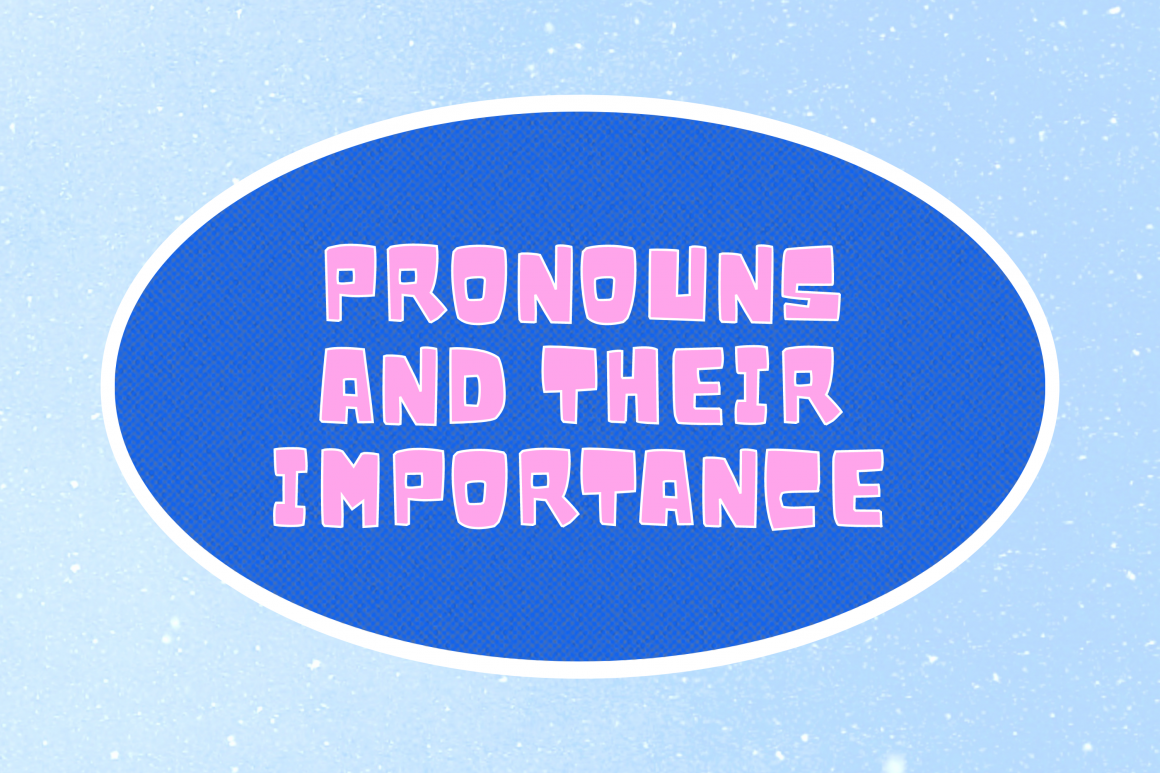
How accepting gender fluidity is one step closer in dismantling the patriarchy
By Aymen Sherwani and Mihret Amdu Yirgeta, July 7 2022—
The importance of using a person’s preferred pronouns cannot be understated. At the very least, it acknowledges and respects a person’s identified sense of self. Using one’s preferred pronouns — regardless of whether you believe they fit your mind’s perception of a certain gender or not — creates an inclusive space for people to be their authentic selves. This is especially important for people who are still discovering and exploring their identities. Creating safe spaces will enable them to try out different aspects related to their identity so that they can live without the fear of judgement or backlash from those who say that gender fluidity veers away from societal norms.
Gender fluidity isn’t a new thing either — whether it’s South Asia’s Hijra communities, Indigenous Two-Spirit people or even Bakla from the Philippines — it is evident that the gender binary has never truly been a thing, rather, anyone who doesn’t conform to such a binary is cast out to the margins of society. Addressing someone in a way which you do not identify — simply because you don’t see someone to be a man, woman or anywhere else on the spectrum — is a reflection of your own refusal to learn and adapt at a time where the queer community’s voice has been its loudest.
What non-queer folks can do is engage in the practice of including preferred pronouns in social media biographies, email signatures and other places where it serves an important purpose. When done by cisgender individuals, it becomes normalized and enables transgender and non-binary people to also include their preferred pronouns without seeming like an anomaly. This way, one knows how others prefer to be addressed and avoid misgendering them — no one loses here and, yet, people are still upset. Here, it becomes more of an issue of compliance rather than an issue of lack of understanding. People that benefit from the system such as. straight men and women that derive power from their gender and conceptions of masculinity or femininity, feel threatened that their traditional spaces are changing.
In order to dismantle transphobia, however, we need to acknowledge how men and women view each other within the gender binary — in understanding that, we understand the way cisgender people oppress transgender people. Transphobia is rooted in a sense of loss of gender-based power in the sense that cisgendered men may feel emasculated by a transgender man — refusing to respect that a woman has transitioned into a man is rooted in misogyny and a refusal to accept them into their circle of manhood. They refuse to say “he/him” because of their preconceived notions of what makes a man — women follow suit here.
The feminine relationship with men is one of mistrust, due to centuries of patriarchal oppression, grooming and violence — in that sense, cisgender women exhibit transphobia and a lack of acceptance towards transgender women because their femininity is defined by the notion that there is a specific way to be female. To those that identify as non-binary, cisgender individuals who have gender binaries deeply ingrained into their heads question why they aren’t “either-or” because of the power that accompanies gender — to them, it’s unfathomable to exist outside because of how intertwined they are with gender-based inequality.
This intolerance extends to physical expressions of gender as well, for instance, while both Billy Porter and Harry Styles identify as cisgender men, they have been criticized by conservative pundits for dressing in ways deemed “non-masculine” because they wear dresses, makeup or nail polish. Again — less about understanding why a man could possibly wear a dress and more about compliance. There are always those who refuse to learn and grow, those who prefer to cling to their way of thinking to the point of becoming hostile or rude. These people will often refuse to respect someone’s preferred pronouns, intentionally misgendering them — despite it not impacting anything but their ego and assumptions about someone’s gender based on their own physical evaluation of them.
To think you can address someone better than they can — it’s quite dumb when you think about it and yet, I can imagine the humiliation and anger a cisgender man or woman would feel when someone mistakes them for their gendered counterpart. It is a privilege to be able to walk down the street and not have to worry about being misgendered on the basis of your physical expression. At the same time, to feel emasculated or unfeminine is quite possibly one of the worst fears a cisgendered person experiences because it is inherently rooted in their self-worth and identity. Why they can’t apply this same logic to properly gendering others is not an exercise of ignorance, but oppression. If cisgendered people can understand this, they have no excuse for not respecting the pronouns of transgender and non-binary individuals.
